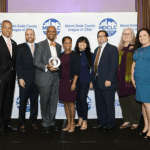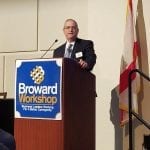On behalf of Scenic America, Inc., Partner Laura Wendell and Member Susan Trevarthen presented a petition for writ of certiorari to the United States Supreme Court in December, 2016. The Court was intrigued. In unusual moves, the Court called for responses from the government, called for Scenic America to file a reply and all told, distributed the petition for conference a total of four times. In the end, on October 16, 2017, the Court denied the petition. In announcing the denial, the Court issued a rare statement, authored by Justice Gorsuch and joined by Chief Justice Roberts and Justice Alito. Although ultimately persuaded that certiorari should be denied because the case itself came with “difficult and close” jurisdictional questions that would complicate the Court’s efforts to reach “the heart of the matter,” Justice Gorsuch wrote to address the importance of the legal issue presented in the petition.-[http://bit.ly/2hPWeZb]
In the lower courts, Scenic America challenged a 2007 Guidance Memorandum issued by the Federal Highway Safety Administration (“FHWA”), which interpreted a prohibition in federal-state agreements against “flashing,” “intermittent” or “moving” lights on billboards to allow digital billboards which changed their images every 8 seconds. Scenic America maintained that FHWA’s interpretation ignored the obvious meaning of the terms of the prohibition. In particular, Scenic America argued, the FHWA’s interpretation of the prohibition against “intermittent” lighting to mean that the illumination could go on or off more than one time, at any interval, is contrary to the plain meaning of “intermittent.”
In its petition, Scenic America urged the Court to accept the case for review to answer the question of whether Chevron-style deference should be afforded to FHWA’s interpretation of the federal-state contracts to which it is a party. Under Chevron, courts defer to the “reasonable judgment” of agencies with regard to the meaning of ambiguous terms in statutes they are charged with administering. That approach should not apply to contract interpretation, Scenic America argued, where the agency itself is an interested party to the contract and judicial deference might lead to endorsement by the court of an agency’s self-serving, after-the-fact reinterpretation. No fan of Chevron-deference, Justice Gorsuch wrote that even if one assumes that Chevron-deference is proper in the context of statutory ambiguities, “whether Chevron-type deference warrants a place in the canons of contract interpretation is surely open to dispute.”
This is just one example of the depth and breadth of Weiss Serota Helfman Cole & Bierman’s Appellate Practice. Laura Wendell is a member of the firm’s Appellate Practice Group. She is Board Certified by The Florida Bar in the field of Appellate Law and practices at all levels of state and federal courts. Susan Trevarthen is a Board Certified municipal attorney who chairs the firm’s Public Land Use and Zoning Group. She specializes in constitutional law issues and, as such, regularly collaborates with the Appellate Practice Group.






